Four terrific books about writing
For other posts with recommended books, see:
Six Terrific Books About Decision Making by Non-psychologists
My favorite books written in the last two years or so
Eight recommended books about good and evil
Writing is difficult and stressful. I’d much rather read books about writing.
Here are my four favorites, each taking a different approach. What they have in common is that are very well-written. When I started leafing through these books to remind myself what they said, I ended up spending many hours happily re-reading large chunks. Enjoy.
Writing advice informed by cognitive science and linguistics
Steven Pinker, The Sense of Style.
What can the study of the mind tell us about good writing? A lot, it turns out. Many otherwise excellent guides to writing provide lists of rules without explaining why anyone should follow them. Steven Pinker goes deep, showing how understanding the science of memory, social understanding, and syntactic structure can really pay off in making one a better writer.
Writing advice (and more) for early-career academics
Barbara Sarnecka, The Writing Workshop (hard-copy) and The Writing Workshop (online, free)
I highly recommend this for graduate students and postdocs, but it’s useful for the rest of us as well. Barbara Sarnecka gives gentle advice about every aspect of the writing process, from dealing with anxiety and setting up a work schedule, to how to structure a literature review or a funding proposal, to guidance about the most fundamental aspects of writing—there is a chapter on paragraphs and another chapter on sentences.
A writing life
Stephen King, On Writing.
The forward begins: “This is a short book because most books about writing are filled with bullshit. … I figured the shorter the book, the less the bullshit.” This isn’t a guide to writing in the sense that the other books are; it’s a literary autobiography with lots of war stories. But Stephen King has good war stories, and his book really is bullshit-free.
And there’s advice here that’s useful even to those of us who don’t aspire to be best-selling novelists. In Pinker’s book, he talks about the importance of getting others’ feedback—we can be our worst editors because we’re too close to our work. But writers do need to go over multiple drafts, and you can’t always rely on others. King’s solution is that once you have a good first draft, put it aside for about six weeks. When you pick it up again, you are, in some interesting sense, a different person than the one you wrote it, and you’re in a better position to see its weaknesses.1
Writing advice that goes deep
Francis-Noël Thomas and Mark Turner, Clear and Simple as the Truth
This is my favorite. The Amazon page has a good summary:
In the first half of Clear and Simple, the authors introduce a range of styles--reflexive, practical, plain, contemplative, romantic, prophetic, and others--contrasting them to classic style. [The principles of classic style] are simple: The writer adopts the pose that the motive is truth, the purpose is presentation, the reader is an intellectual equal, and the occasion is informal. Classic style is at home in everything from business memos to personal letters, from magazine articles to university writing.
The second half of the book is a tour of examples--the exquisite and the execrable--showing what has worked and what hasn't. Classic prose is found everywhere: from Thomas Jefferson to Junichirō Tanizaki, from Mark Twain to the observations of an undergraduate. Here are many fine performances in classic style, each clear and simple as the truth.
Clear and Simple has made me better at writing classic prose, even though I often choose to depart from the style (like in this post, where I’m talking way too much about myself). When I’m stuck and hate myself and my work, I pick up Francis-Noël Thomas and Mark Tuner’s short and wonderful book, and it boosts me right up again.
Do I take this advice? Yes, for books. Not for smaller pieces like this one, but I never publish something if there isn’t some gap—even just a day or so—between finishing a good draft and giving it a careful read-over.


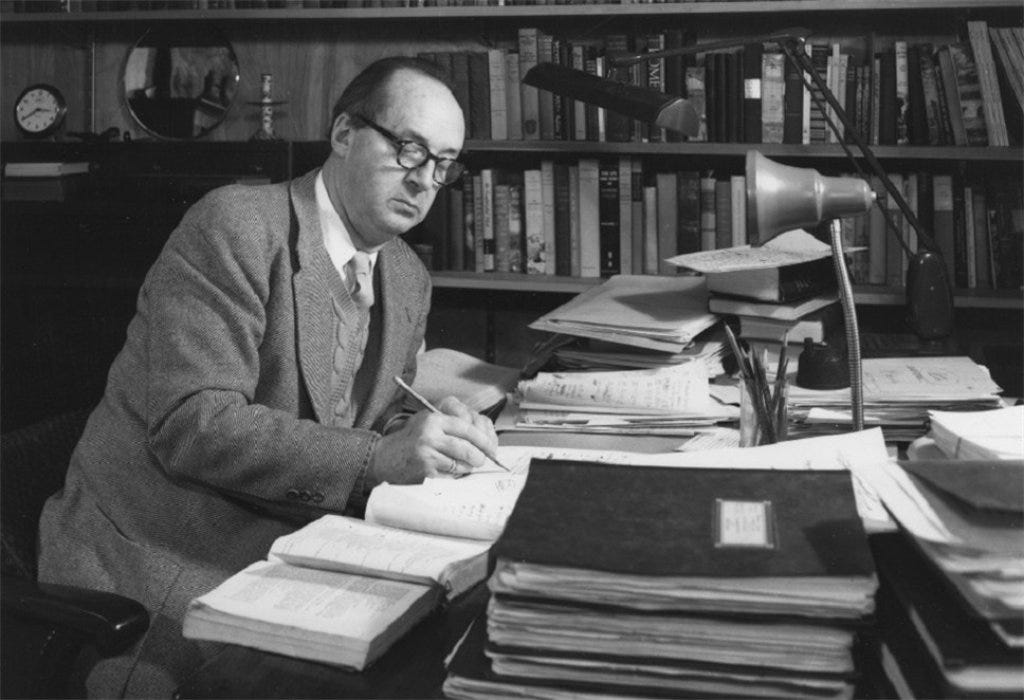
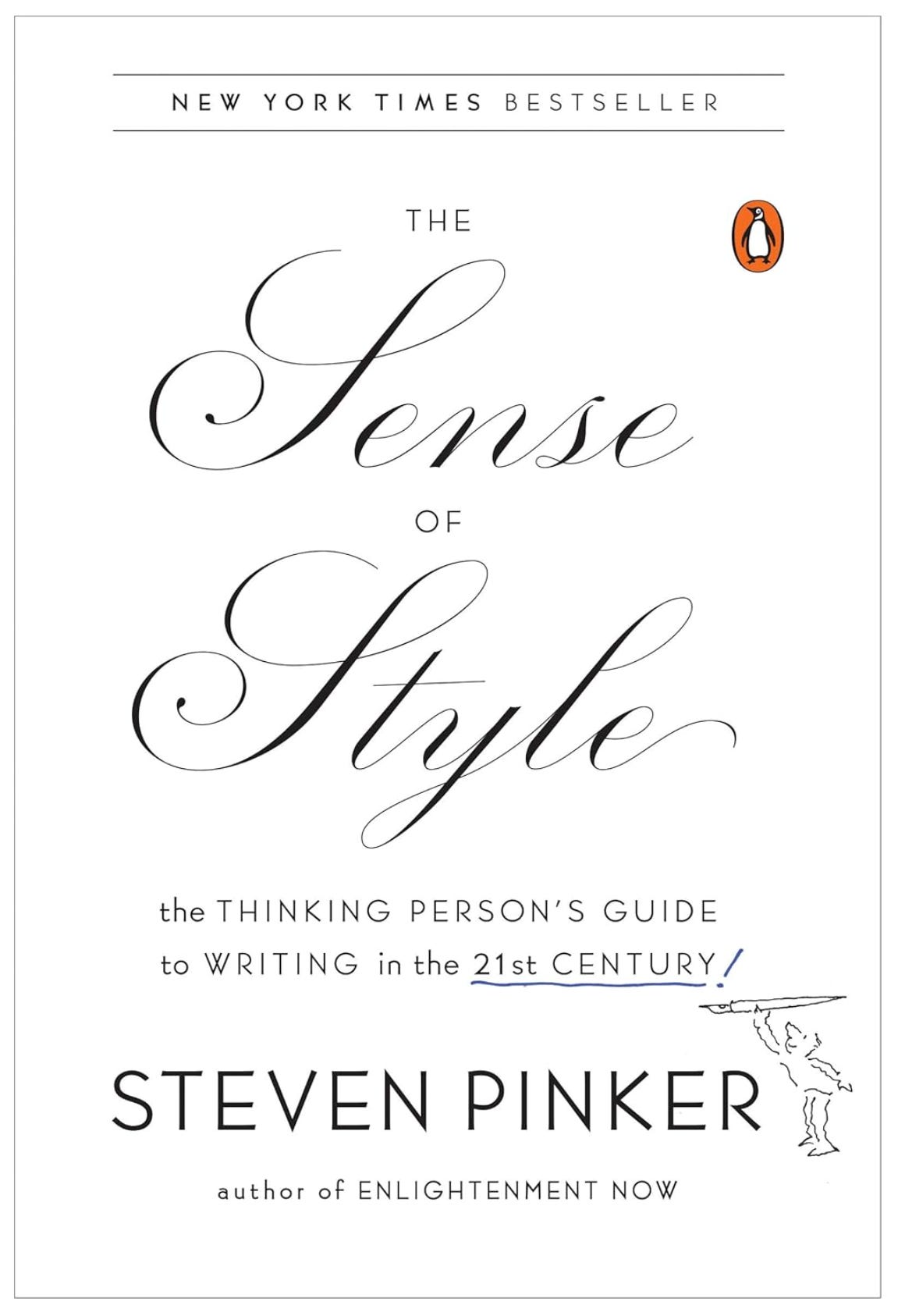
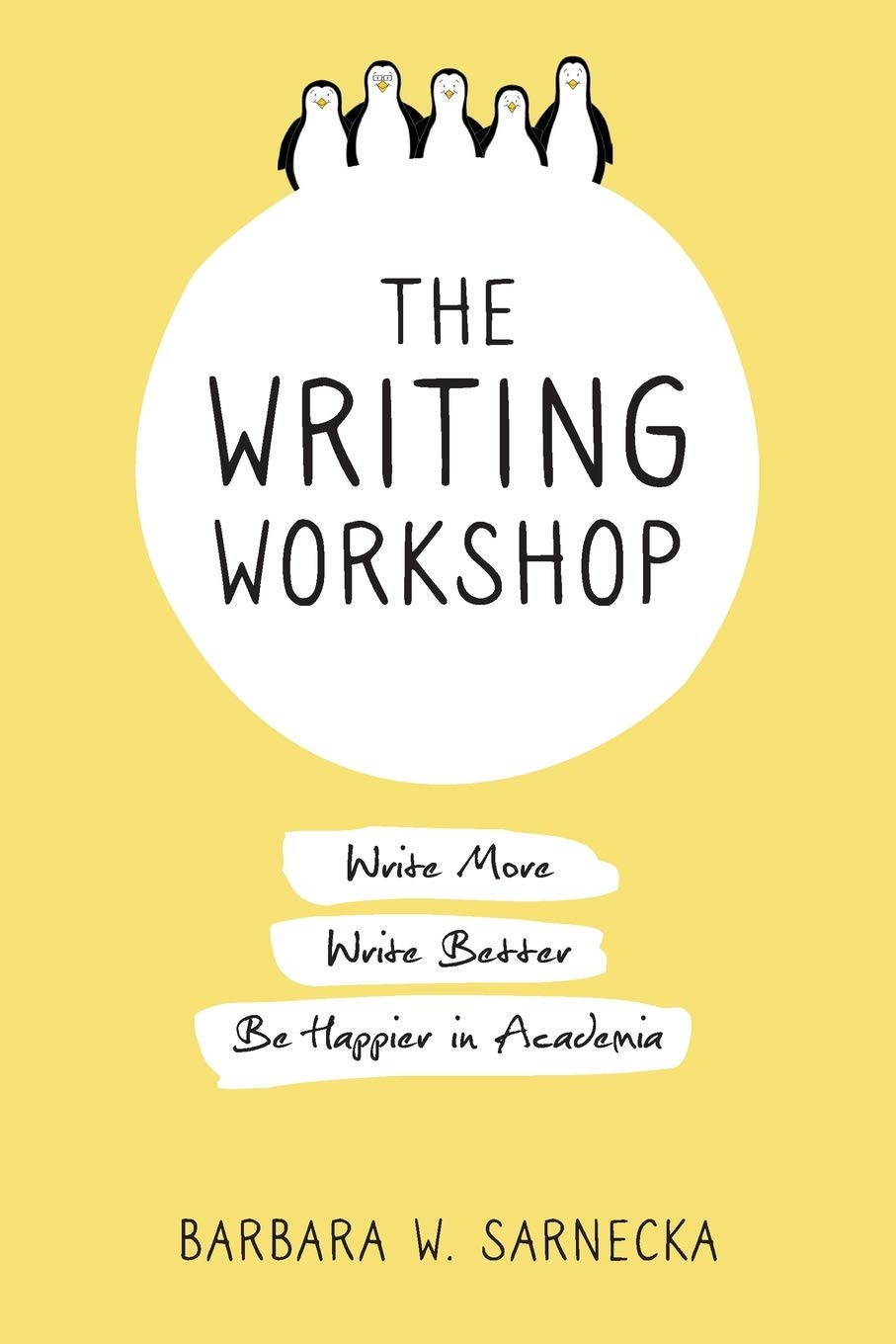
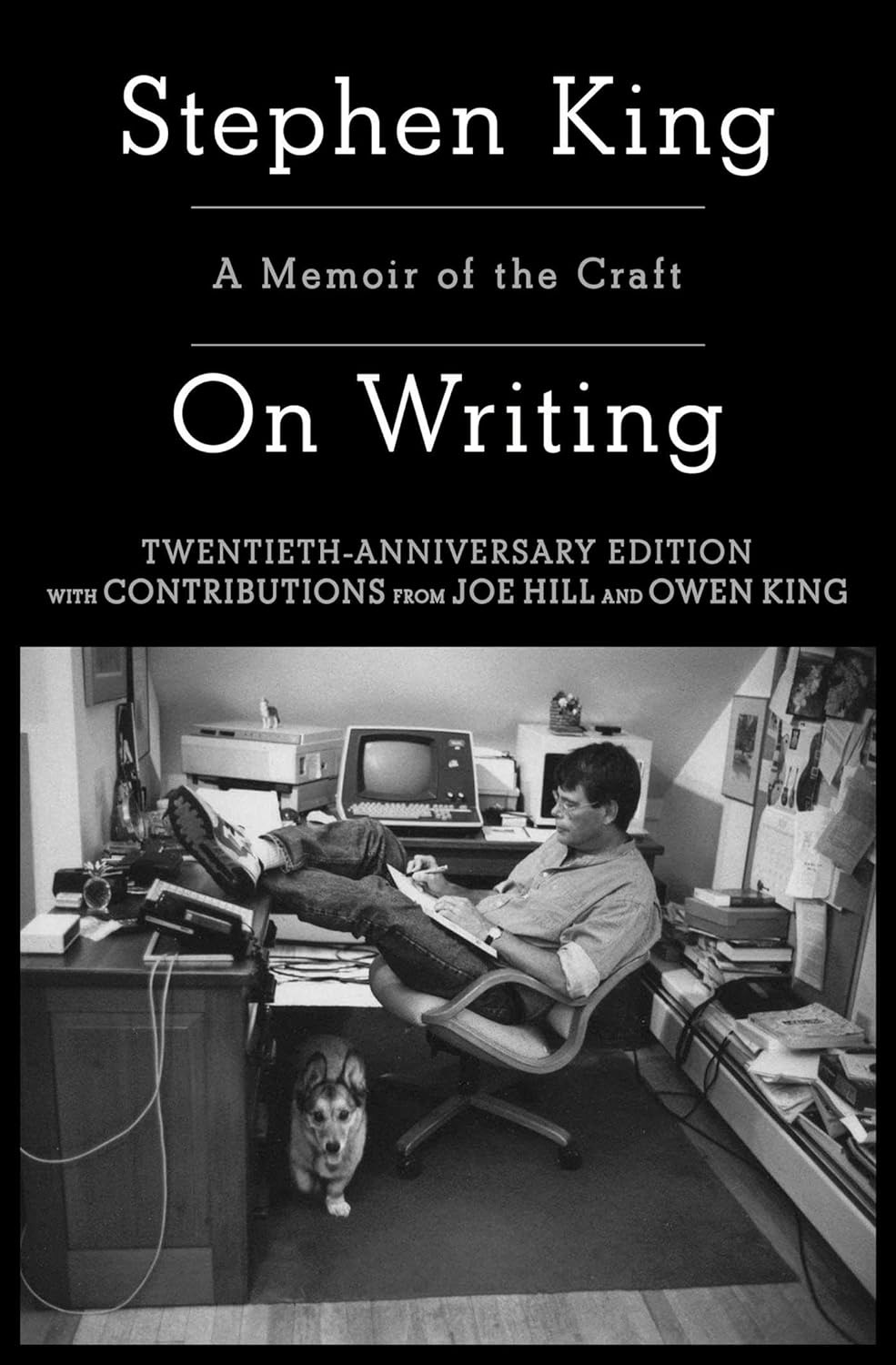
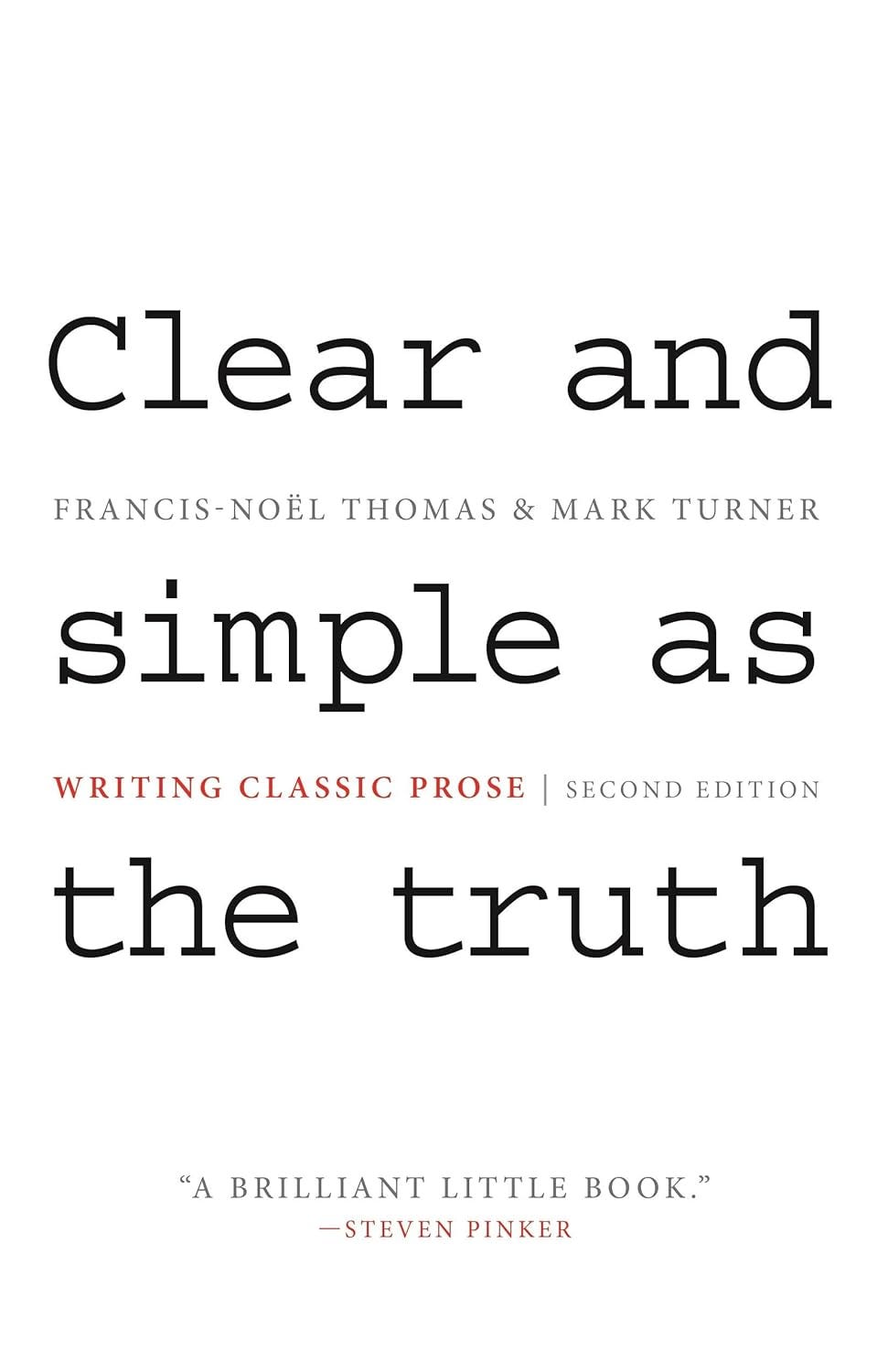
If you want to write fiction:
Pity the Reader by Kurt Vonnegut and Suzanne McConnell
Consider This by Chuck Palahniuk
Thank you for these recommendations. Reluctant writers, harried academics, and those who struggle with time management problems might also benefit from the work of Robert Boice ("Professors as Writers," etc). Although his writing doesn't have the same sentence-by-sentence charm, he sometimes strikes me as a forerunner of the great Oliver Burkeman.